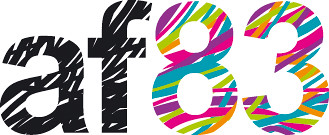A-mazing Erlang
| At Extreme Forge, we believe that the most efficient and enjoyable way
to successful projects is to focus on having clean code that works. In
the wake of test-driven development, software craftsmanship and coding
dojos, we are working on an contest engine that allows people from
around the world to gather online and compete for fun and learning on an
interesting coding problem, in real-time.
A beta session of what
we called the Agile Cup was held in April, where the problem was to
find the way out of a maze of increasing complexity. In addition to
solving mazes, the competitor's program must communicate with the engine
through an HTTP/JSON interface.
I will code, live, an Erlang
solution to this problem, in the hope of showing some clean Erlang code
that works to the audience, and in order to provide a live, commented
demonstration of the test-driven development approach to programming. |
Erlang for real-time web
| Erlang has been here for a long time and is now a great mature environment for programmers. New projects emerge everyday, exploiting its strengths to build tomorrow's leading applications. We will see how Erlang is fit to implement the latest web technologies, such as Websockets and EventSource. The combination of Erlang and these new standards is our answer to the challenges set by the rise of real-time web.
The talk will be illustrated by use cases we had on U.C.Engine, a framework to build real-time web applications.
|
Extend CouchDB and Build new apps based on CouchDB
| This talk will explore how to extend CouchDB features in Erlang and embed it in your appplication by taking the example of Refuge a P2P platform and upondata a data curation platform based on CouchDB. We will also investigate how to build external applications accessing to couchdb by using coucbhbeam.
|
Lessons learned - how we use Erlang to analyze millions of messages per day
| At Semiocast, a start-up founded in 2009, we use Erlang since day one to
fetch and process millions of tweets and social media conversations. In
this talk, we will present lessons we have learned in terms of code
deployment, architectural design, Erlang technologies used and
integration with native code. In particular, we will cover how we use
OTP and code change, the various kinds of drivers (NIF, Linked-In,
External, C-node), our usage of HiPE and dialyzer, and a few things we
wish we knew back in 2009. |
Validation using Erlang's type system with Sheriff
| This summer two students of the Erlang Cowboy have taken the task to create a parse_transform that would allow validating values using Erlang's type system directly! Find out how it works and where it can be of use to your project.
|





